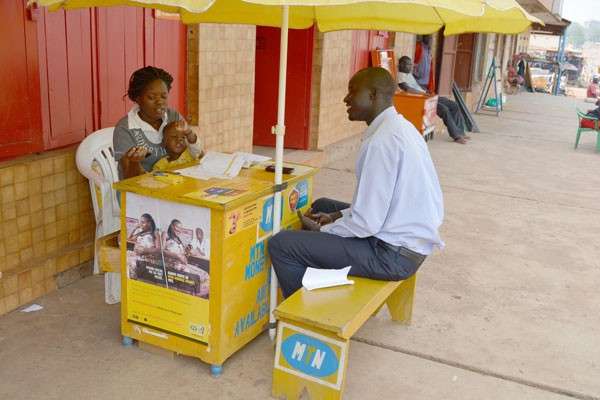Ghana’s mobile money ecosystem continues to surge, with April 2025 witnessing a record-breaking GHC 365.0 billion in transactions.
This marks a significant milestone in the country’s digital financial sector, affirming the growing trust and dependence on mobile-based financial services. According to the latest Summary of Economic and Financial Data released by the Bank of Ghana, this represents a 3.8% increase over the GHC 351.7 billion recorded in March 2025.
The consistent month-on-month growth in mobile money transactions reflects increasing public confidence in the system’s reliability and convenience. April’s GHC 365 billion total is the highest monthly value registered since the beginning of the year, pointing to a positive trend that could define the trajectory of Ghana’s financial services sector throughout 2025.
Beyond the value of transactions, the number of mobile money transactions also climbed, rising from 764 million in March to 778 million in April. This represents an increase of 14 million transactions within just one month—another indicator of growing adoption among Ghanaians.
A Cornerstone of Financial Inclusion
Mobile money has evolved into a crucial driver of financial inclusion in Ghana. As physical bank branches remain limited in many rural areas, mobile money platforms have stepped in to fill the gap, bringing financial services to previously underserved communities. The steady increase in both transaction value and volume underlines mobile money’s ability to bridge the financial access divide.
With mobile money, users can send and receive money, pay utility bills, purchase airtime, and even access credit and savings products—all from the convenience of a mobile phone. This transformation has enabled individuals and small businesses to participate more actively in the economy.
Several factors have contributed to the continued expansion of Ghana’s mobile money sector. Chief among them are the rising mobile phone penetration rate and the steady growth of the mobile money agent network, which now covers even the remotest parts of the country. As more people gain access to smartphones and basic mobile phones, the use of digital financial services has become more widespread.
The convenience of mobile money also plays a critical role. With 24/7 access and the ability to transact without the need for traditional banking infrastructure, mobile money platforms have become the go-to financial solution for many Ghanaians. Businesses have also embraced the system for cashless payments, wage disbursement, and supplier transactions, boosting efficiency and reducing risks associated with handling physical cash.
Regulatory Environment Encourages Digital Finance
Ghana’s regulatory environment has been instrumental in supporting the growth of mobile money. The Bank of Ghana has implemented a proactive policy approach that encourages innovation while ensuring consumer protection and systemic stability. This includes frameworks for electronic money issuance, agent banking, and interoperability between mobile money operators and banks.
Moreover, partnerships between telecom companies, fintech startups, and financial institutions have enhanced service offerings and made mobile money platforms more robust. The rise of QR code payments, mobile-based lending products, and digital insurance solutions has further strengthened the ecosystem.
With the total transaction value in April setting a new benchmark, analysts predict the upward trend will continue. As the digital economy matures and mobile money platforms introduce new services, more individuals and businesses are expected to shift towards mobile-first financial solutions.
The challenge now lies in sustaining this momentum while addressing potential hurdles such as cybersecurity, digital literacy, and rural connectivity. Continued investment in digital infrastructure, public awareness campaigns, and capacity-building initiatives will be key to unlocking the full potential of mobile money in Ghana.
READ ALSO: PNP Slams Gov’t Over NHIS ‘Cash-And-Carry’ System



















